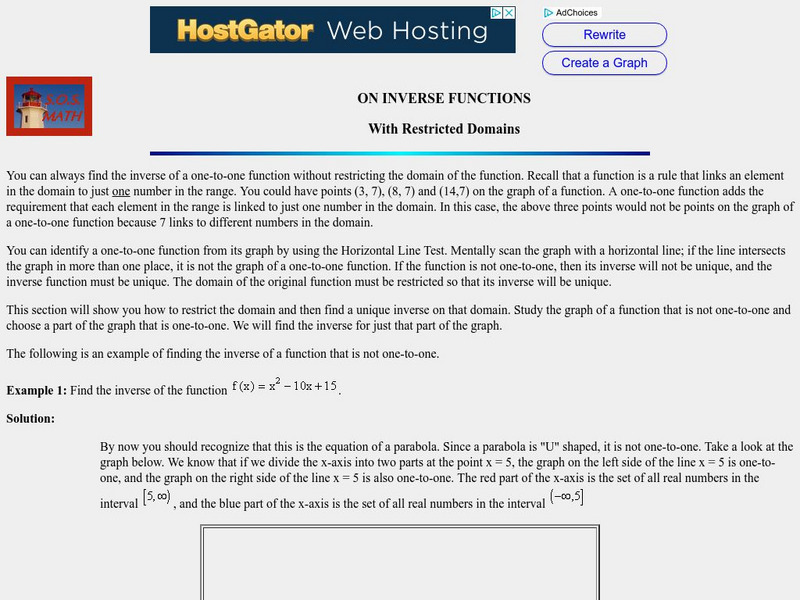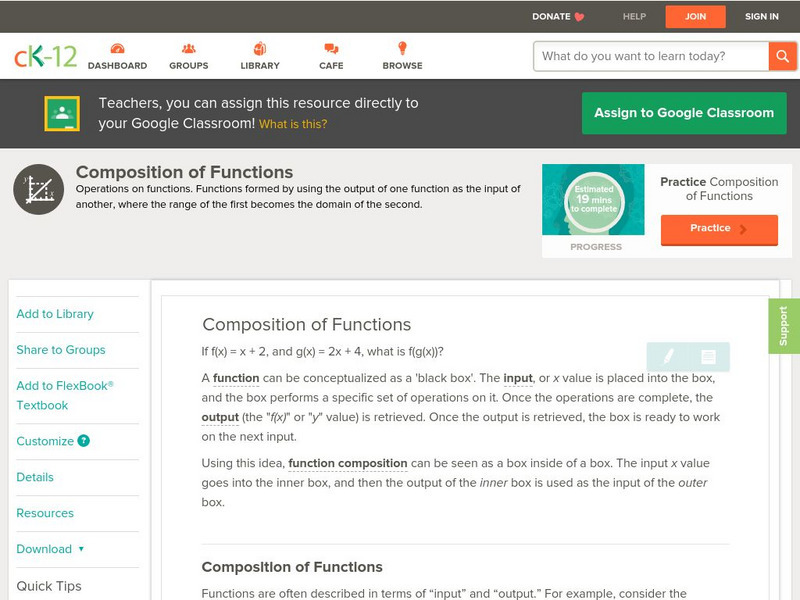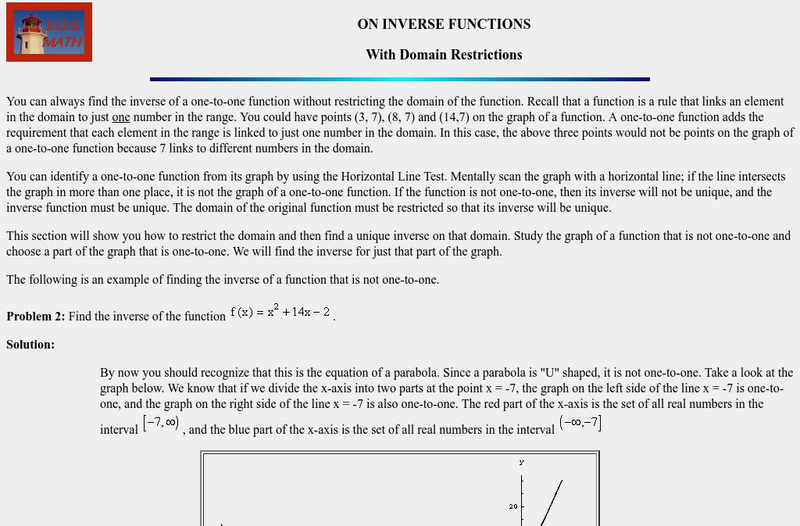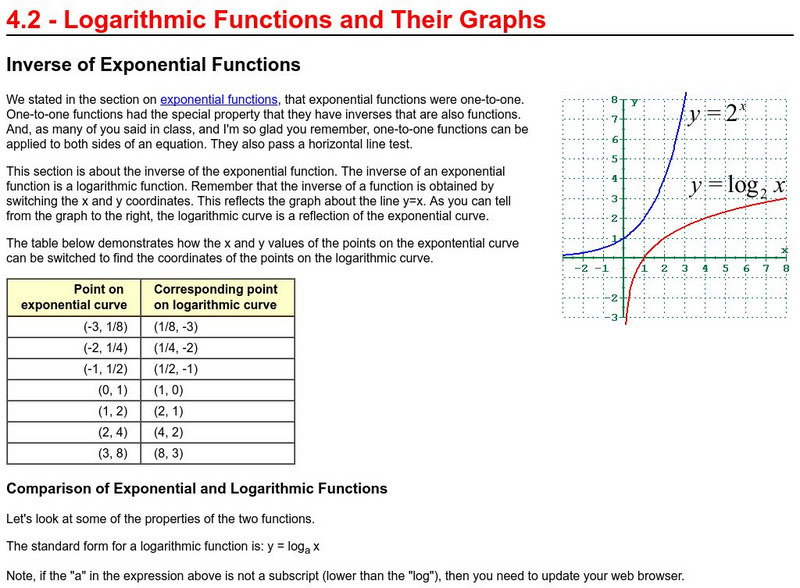Johan Claeys
Math Abundance: Hyperbolic Functions and Inverses
Site has information and examples for topics about hyperbolic functions and inverses.
Math Medics
S.o.s. Math: Inverse Functions
This tutorial contains four lessons on inverse functions (on five pages) including an introduction, inverse functions with no domain restriction, composition of functions, and inverse functions with domain restriction. Includes practice...
Math Medics
S.o.s. Math: On Inverse Functions With Restricted Domains
Offers a step-by-step explanation of a one-to-one function problem on inverse functions with restricted domains, clearly using the horizontal line test. Includes sample problems.
Cuemath
Cuemath: Inverse Operations
Explore the world of inverse operations by finding answers to questions like what are inverse operations, what are properties of inverses, and how to use inverse operations with help of interactive questions on inverse operations.
CK-12 Foundation
Ck 12: Algebra: Composition of Functions
[Free Registration/Login may be required to access all resource tools.] This lesson describes and demonstrates composition of functions. Students examine guided notes, review guided practice, watch instructional videos and attempt...
Analyze Math
Analyze Math: Inverse Trigonometric Functions
The mathematics tutorial examines inverse trigonometric functions. The tutorial consists of explorations and examples. The interactive applet allows students to investigate domain, range, and graphs of inverse trigonometric functions.
Khan Academy
Khan Academy: Restrict Domains of Functions to Make Them Invertible
Given the graph of a function, find ways to restrict its domain in order to make it invertible. Students receive immediate feedback and have the opportunity to try questions repeatedly, watch a video or receive hints.
Math Medics
S.o.s. Math: Inverse Funtions, Domain Restrictions
Good lesson explaining the inverse function with domain redsrictions and giving an example.
Math Open Reference
Math Open Reference: Trigonometry Functions Introduction
A complete reference guide to trigonometry functions. It provides definitions, examples, and an interactive activity that enhances further explanation. Includes links to related topics.
Math Open Reference
Math Open Reference: Sine (Sin) Function Trigonometry
A complete reference guide to the sine function. It provides definitions, examples, and an interactive activity that enhances further explanation. Includes links to related topics.
Math Open Reference
Math Open Reference: Cosine (Cos) Function Trigonometry
A complete reference guide to the cosine function in trigonometry. It provides definitions, examples, and an interactive activity that enhances further explanation.
Math Open Reference
Math Open Reference: Tangent (Tan) Function: Trigonometry
Learn about the tangent with this helpful reference tool. Provides a detailed definition, examples, and an interactive activity that enhances further explanation. Includes links to related topics.
Math Is Fun
Math Is Fun: Sine, Cosine, Tangent
Students learn about the sine, cosine, and tangent functions. The tutorial consists of notes, examples, and practice problems to check for comprehension.
Other
Mecca: Review for Trigonometric Functions
A page of review problems on trigonometric functions. Answers are supplied.
Windstream
Ojk's Precalculus Study Page: Evaluating and Graphing Sine and Cosine
An introduction to graphing the sine and cosine functions by using the 30-60-90 and 45-45-90 right triangle values of the two functions as guides.
Richland Community College
Richland Community College: Logarithmic Functions
This site from Richland Community College includes basic definition, properties, and graph of the logarithmic function.
Khan Academy
Khan Academy: Trigonometric Ratios in Right Triangles
Learn how to find the sine, cosine, and tangent of angles in right triangles.
Windstream
Ojk's Pre Calculus Study Page: The Four Other Trig Functions
Trigonometry ratios and their signs are given in this explanation of the other trig functions. Graphs of tangent, cotangent, secant, and cosecant are given. Examples are included.











